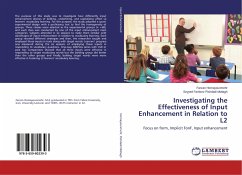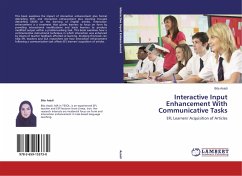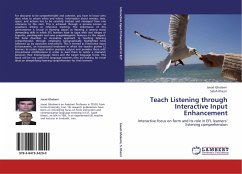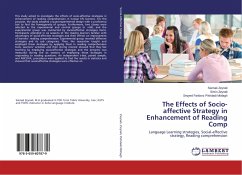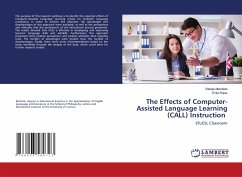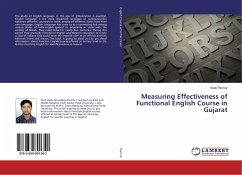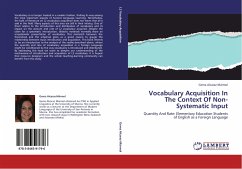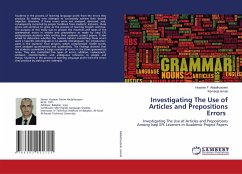The purpose of this study was to investigate how differently input enhancement devices of bolding, underlining, and capitalizing affect L2 learners' vocabulary learning. For this purpose, the study adopted a quasi-experimental design with a proficiency test to find the homogeneity of groups. Three classes were selected as the experimental groups (n =60), and each class was conducted by one of the input enhancement main categories. Subjects attended in six sessions to make them familiar with advantages of input enhancement in relation to vocabulary learning. Each group received different strategies and then, the researcher taught and employed those inputs in texts along with target words. Learners' progress was measured during the six sessions of employing those inputs in responding to vocabulary questions. One-way ANOVAs series with LSD or post hoc comparisons showed that all three inputs were effective in responding to target vocabulary words but the bolding group did better than the other groups and finally, bolding target words were more effective in fostering L2 learners' vocabulary learning.

